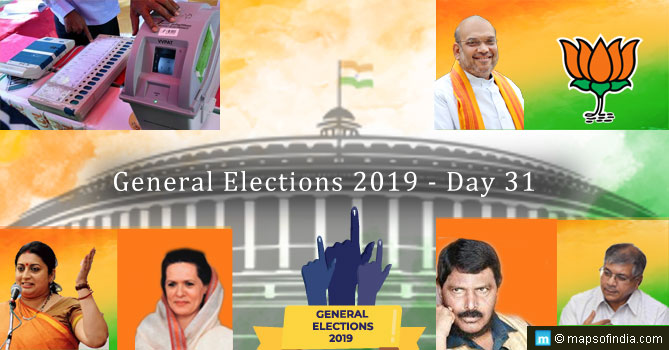The proposed Communal Violence Bill of 2013:
The National Advisory Council (NAC) has furnished a draft for a Bill designated “Prevention of Communal and Targeted Violence (Access to Justice and Reparation)” with the purpose,
“to respect protect and fulfill the right to equality before law and equal protection of law by imposing duties on the Central Governments and the State Governments, to exercise their powers in an impartial and non discriminatory manner to prevent and control targeted violence, including mass violence against Scheduled Castes, Scheduled Tribes, and religious minorities in any State in the Union of India and linguistic minority in any state in the union of India; to thereby uphold secular democracy, to help secure fair and equal access to justice and protection to these vulnerable groups through effective provisions for investigation, prosecution and trial of offences under the Act; to provide for restorative relief and reparation including rehabilitation and compensation to all persons affected by communal and targeted violence; and for matters connected herewith and incidental thereto”
Scheduled to be tabled before the Parliament in the winter Session, the proposed Bill had met with extreme criticism from every possible quarter including opposition political parties.
Strong objections of Jayalalithaa and Narendra Modi to the proposed Bill:
Tamilnadu Chief Minister J Jayalalithaa and the BJP Prime Ministerial candidate Narendra Modi had protested vehemently against the new CVB in a written communication to the Prime Minister Manmohan Singh. Modi’s opinion against the bill can be perceived easily from his tweet in the social site Twitter, “Communal Violence Bill is ill conceived, poorly drafted and a recipe for disaster!” Modi also accused that, the recent endeavors of the Congress led UPA II Government regarding the said bill stank of unabashed politics to influence vote banks, considering the timing of the proposed bill. As further elaborated by him in his tweet, “Timing of the Communal Violence Bill is suspicious. Political considerations and vote bank politics are guiding it”. Debating that such a Bill may eventually prove to be unfavorable and antagonistic in purpose, rather than improving communal harmony, he further added in his tweet, “The proposed legislation would further divide the Indian society on religious and linguistic lines”. In his personal website, Modi has informed the Prime Minister of his personal arguments regarding the Bill, “…..religious and linguistic identities will become more reinforced and even ordinary incidents of violence would be given a communal color thus giving the opposite result of what the bill intends to achieve”.
Modi’s opposition to the new Bill is also based on the fact that the passing of such a legislation openly defies the federal Constitution of India as evident from his argument, “Communal Violence Bill is clear violation of India’s federal structure. Centre is busy forming laws on matters that are on the State list”. He has backed his argument with the important question, “If legislation has to be implemented by the States, should it not be legislated by the states?”
AIADMK Chief Jayalalithaa is congruent with the opinion of Modi on this point and had voiced her opinions accordingly. Her suggestion to the Prime Minister is one of extensive deliberation and discussions with the State Authorities before taking further actions on implementing the Bill, while Modi had suggested an alternative course of action for the Bill. According to him the Central Government should confine its actions to formulating a prototypical copy of the bill and disseminate it among the various State Governments seeking their cogitations.
Objections regarding the minutes of the Bill, the various ‘shortcomings’ and ‘operational issues’ have been communicated by Modi to the Prime Minister via his personal website. One such seemingly vague provision included in the Bill happens to be the ‘hostile environment’ issue to which both Modi and Jayalalithaa had voiced strong objections. Modi further argued that the proposed bill seems to induct the concept of ‘thought crime’ which in no way is relevant to the Evidence Act. As per the claims of his website, in his written communication to the Prime Minister, Modi has also raised objections regarding the section 108 of the Bill, where the provision attempts to hold the higher administrations culpable for flaws in the event of a communal violence indicating that such a provision can have a negative impact on the esprit de corps of the law and order enforcement authorities. The probable consequences of such a provision will render the law and order enforcement authorities defenseless against political castigation and cause senior officials to shy away from their due responsibilities in order to avoid criminal impeachments. Modi, however, accepted the envisagement of the ‘Communal Violence Reparation Fund’ as mentioned in the proposed Bill as a commendable step on the part of the Government.
Objections raised by the BJP leader Arun Jaitley:
BJP leader Arun Jaitlee also voiced strong oppositions against the Bill terming it as ‘highly discriminatory’ and likely to create sharp communal factions within the country. Criticizing the Center’s efforts of pushing the Bill issues just before the impending Lok Sabha elections, he further commented in an article, “It appears that on the eve of the Lok Sabha elections, in order to polarize the country on communal lines, the Ministry of Home Affairs has again written a letter to the State Governments enclosing therewith revised draft of the Bill. There hasn’t so far been adequate consultation with the stakeholders”.
Conclusion:
The bill “Prevention of Communal and Targeted Violence (Access to Justice and Reparation)”, proposed by NAC is undoubtedly unconstitutional and the legislation, when passed, may have severe repercussions. The Bill is likely to polarize various communities of the country, which is totally against the communal harmony of our country and defeats the entire cause of the Bill. The Centre, in the face of the tremendous criticism of the opposition parties has acceded to make some amendments e.g. inclusion of all the religions in the gamut of the bill, in the draft of the Bill before submitting it in the winter session of the Parliament. Such amendments include omission of the words like ‘majority’ and ‘minority’ and certain changes in the law and order issues mentioned in the draft. Efforts are also being taken to make the proposed Bill look neutral as the previous draft practically blamed the majority for the ignition of communal violence. A general reaction to the Bill is that, it is nothing but another game plan of Mrs. Sonia Gandhi on the eve of the impending elections since the NAC is chaired by Mrs. Gandhi. As for the repercussions, the Bill is just an effort to ‘communalize’ communal violence which will inevitably adversely affect the communal harmony of our country. It’s a general consensus that, communal violence erupts when communal issues are literally fuelled by the political and the religious leaders. But, mostly communal violence is an isolated phenomenon. The communities of our country are not imbeciles that they will start a bloodbath over a piece of nothing. Besides, as pointed out by the Chief Ministers of many States, including Mamata Banerjee, the Chief Minister of West Bengal, who also happens to be a partner in the UPA II, that the Bill violates the federal constitution of our country. Eminent personalities of the judicial system of our country like the Former Chief Justice of India, Justice J S Verma and Justice B N Srikrishna had discredited the Bill. No religious leaders of the so called minorities have uttered a single word in favor of this Bill. The BJP refuse to budge from its stand of opposing the bill and is determined to continue the opposition, amendments or no amendments. The Bill as rightly pointed out by BJP can be best described, harmful for the communal interest of the country. So what is the necessity of passing a Bill in favor of the minorities when it is evident that the said Bill can have so many adverse effects?
Government Prevention Of Communal And Targeted Violence (Access To Justice And Reparation) Bill...




